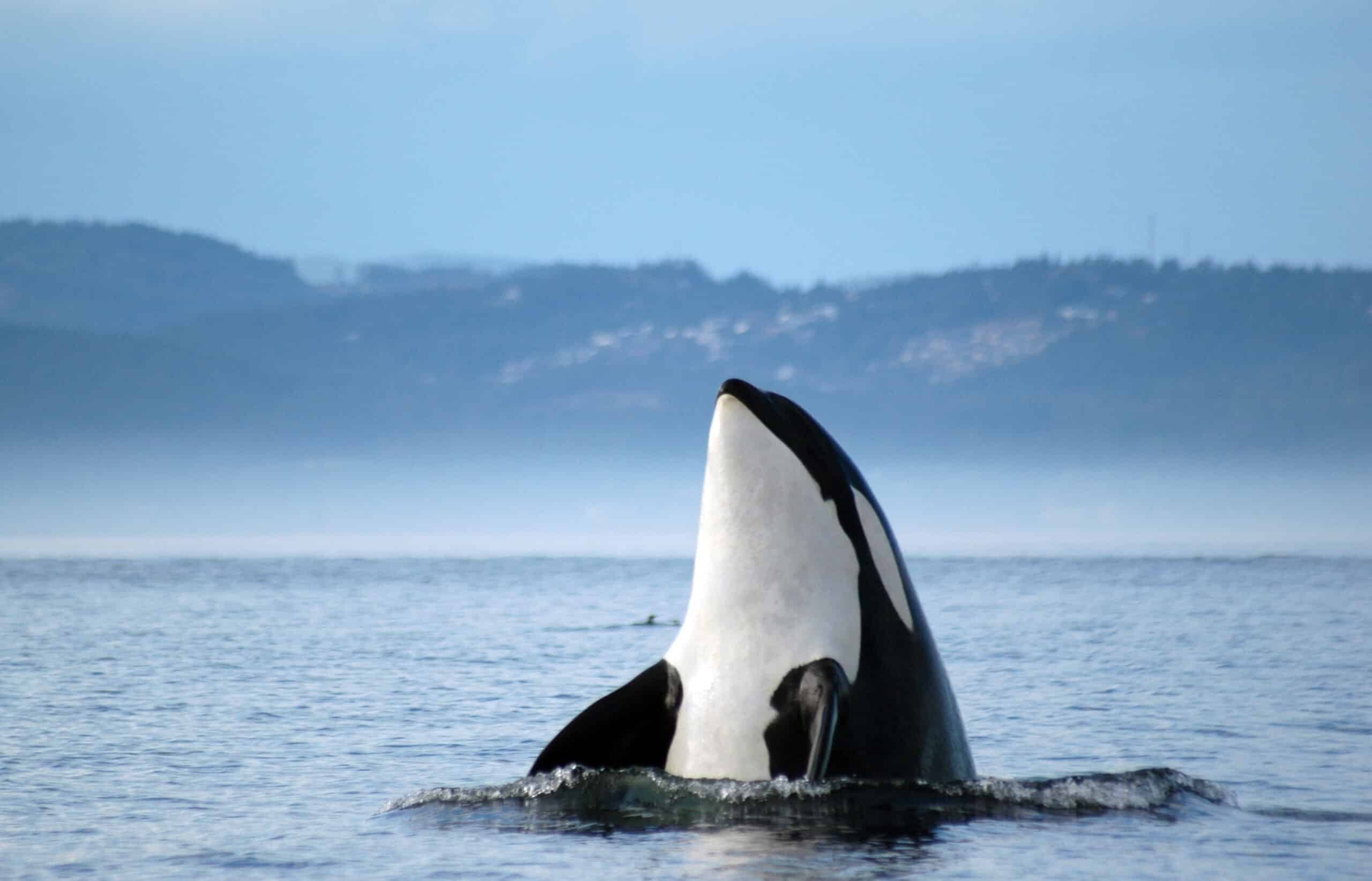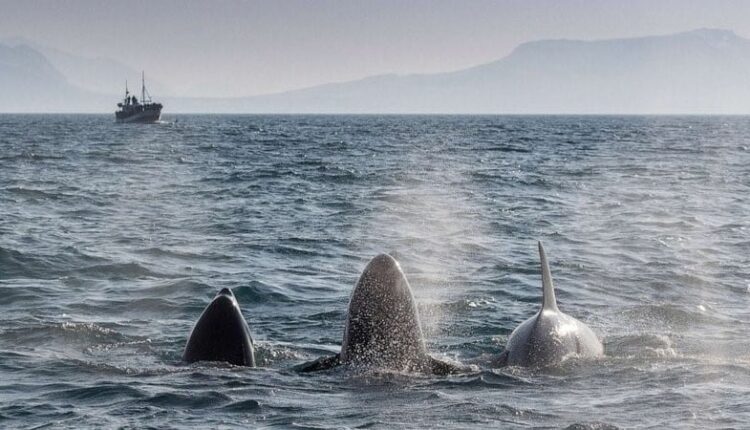Killer Whales and Boat Collisions: Understanding the Risks
Killer Whales and Boat Collisions
Killer Whales and Boat Collisions: Understanding the Risks
Killer whales, also known as orcas, are one of the most fascinating and intelligent creatures in the ocean. They are apex predators and have a complex social structure that includes strong family bonds and communication through vocalizations. However, despite their beauty and intelligence, killer whales can pose a threat to humans, especially when it comes to collisions with boats.

Boat collisions with killer whales are not a common occurrence, but they do happen. These collisions can be dangerous for both the whales and the humans on the boats. In this article, we will explore the reasons why killer whales collide with boats, the risks involved, and what can be done to prevent these accidents.
Why Do Killer Whales Collide with Boats?
There are several reasons why killer whales may collide with boats. One of the most common reasons is curiosity. Killer whales are known to be curious creatures, and they may approach boats to investigate. In some cases, they may even circle the boat or swim alongside it, which can increase the risk of a collision.
Another reason why killer whales may collide with boats is because of their hunting behavior. Killer whales are known to hunt in pods, and they may sometimes use boats as a tool to help them catch their prey. For example, they may use the wake of a boat to disorientate their prey or create waves that push fish towards the surface.
Finally, killer whales may collide with boats because of human activity. For example, boats that are moving too fast or making sudden turns can startle or confuse the whales, leading to a collision. Additionally, boats that are getting too close to the whales or entering their territory can cause the whales to feel threatened or stressed, which can result in aggressive behavior.
Risks Involved in Boat Collisions with Killer Whales
Boat collisions with killer whales can be dangerous for both the whales and the humans on the boats. Killer whales are large and powerful animals, and a collision with a boat can cause serious injuries or even death. In some cases, boats may be damaged or capsized, leading to further risks for the humans on board.
For the whales, a collision with a boat can also be fatal. Killer whales rely on their ability to communicate, navigate, and hunt to survive in the ocean. A collision with a boat can disrupt these abilities, leading to serious injuries or death. Additionally, killer whales that are injured or stressed as a result of a collision may become more vulnerable to other threats, such as disease or predation.

Killer Whales and Boat Collisions: Understanding the Risks
Killer whales, or orcas, are the largest members of the dolphin family. They are found in all the world’s oceans, from the polar regions to the tropics, and are apex predators at the top of the food chain. Killer whales are known for their distinctive black and white markings, and for their complex social structure and communication.
Killer whales are highly intelligent and social animals. They live in pods, which can consist of up to 40 individuals, and have a complex social structure that includes strong family bonds and communication through vocalizations. Killer whales use a variety of vocalizations, including whistles, clicks, and calls, to communicate with each other and navigate their environment.
Killer whales have a varied diet that includes fish, squid, and marine mammals such as seals, sea lions, and even other whales. Their hunting strategies can be complex and coordinated, with different members of the pod taking on different roles. For example, some killer whales may work together to create waves that wash prey off ice floes, while others may use their tails to stun fish.
Killer whales are among the most acrobatic of marine mammals, and are known for their impressive leaps and flips out of the water. They are also incredibly fast swimmers, capable of reaching speeds of up to 30 miles per hour. Killer whales are highly adaptable and have been known to modify their hunting strategies in response to changes in their environment, such as declining prey populations or changes in water temperature.
Despitetheir name, killer whales are not typically a threat to humans. There have been very few recorded attacks on humans in the wild, and most of these have occurred when humans have entered the whales’ territory or disturbed their natural behavior. However, as mentioned earlier, collisions between boats and killer whales can be dangerous for both the whales and the humans on board.
Killer whales are also facing a number of threats in the wild. One of the biggest threats is habitat loss and degradation, as human activities such as pollution, overfishing, and climate change impact the health and availability of their prey. Killer whales are also vulnerable to hunting and capture for captivity, although this practice is now largely banned.
Conservation efforts are underway to protect killer whales and their habitat. These efforts include research into their behavior and ecology, monitoring populations, and implementing regulations to reduce human impacts on their habitat. By working to protect these magnificent animals and their environment, we can ensure that they continue to thrive for generations to come.

Killer Whales and Boat Collisions: Understanding the Risks
Preventing Boat Collisions with Killer Whales
Preventing boat collisions with killer whales requires a combination of education, awareness, and responsible boating practices. Here are some tips to help prevent these accidents:
1. Keep a safe distance from killer whales: Boats should always maintain a safe distance from killer whales, which is typically at least 200 yards. This distance can help to reduce the risk of collisions and alsoprevent disturbance to the whales.
2. Slow down and avoid sudden turns: Boats should slow down when approaching areas where killer whales are known to be present. Sudden turns should also be avoided, as they can startle the whales and increase the risk of a collision.
3. Be aware of whale behavior: Boaters should be aware of the behavior of killer whales and adjust their speed and direction accordingly. For example, if the whales are swimming towards the boat, the boat should stop or move away slowly to avoid a collision.
4. Use caution when fishing: Boaters who are fishing should use caution when killer whales are present. They should avoid using live bait or chumming, as this can attract the whales and increase the risk of a collision.
5. Follow regulations and guidelines: Boaters should follow all regulations and guidelines related to boating in areas where killer whales are present. These regulations may include speed limits, distance requirements, and restrictions on certain activities.
Conclusion
Boat collisions with killer whales are a rare but serious problem that can have negative impacts on both the whales and the humans involved. Understanding the reasons why these collisions occur and taking steps to prevent them can help to protect these magnificent creatures and ensure the safety of boaters. By following responsible boating practices and respecting the natural behaviors of killer whales, we can all play a role in keeping our oceans safe and healthy.



التعليقات مغلقة.